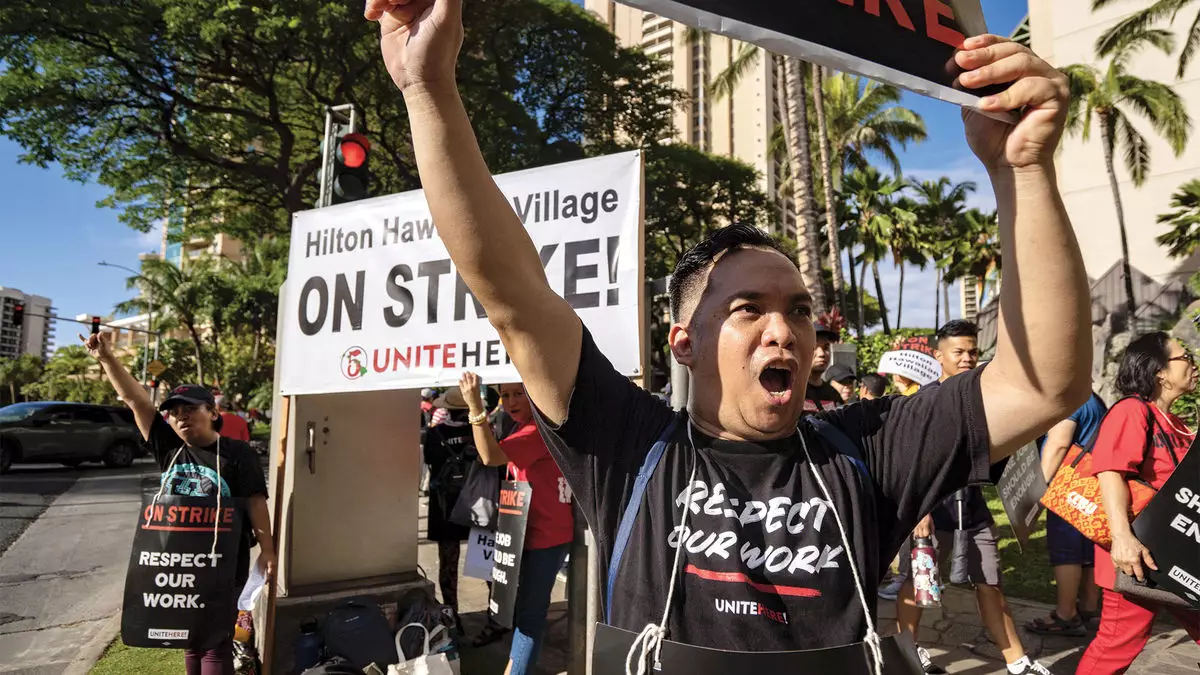Labor Day weekend saw approximately 10,000 hotel workers participating in walkouts across nine major U.S. cities. These strikes, organized by the labor union Unite Here, affected 25 properties operated by prominent chains such as Hilton, Hyatt, and Marriott International. The primary demands of the hotel workers included higher wages, fairer staffing levels, and the reversal of service cuts implemented during the pandemic. These cuts led to job losses and increased workloads for the remaining staff, causing significant challenges for the workers.
The main driving force behind the strikes was the disparity between record profits made by the hotel industry and the struggles faced by its employees and guests. Lack of standard services such as daily housekeeping and room service, combined with inadequate wages to support families in expensive urban markets, created a sense of urgency among the workers. The union’s president, Gwen Mills, highlighted the disconnect between the industry’s financial success and the well-being of its frontline workers.
According to industry experts like David Sherwyn, the cuts in services have significantly impacted the hospitality landscape. Reduced work hours and paychecks, as well as changes in guest expectations due to technological advancements, have forced hotels to reconsider their operations. While some hotels have restored automatic daily housekeeping following the strikes, negotiations now focus on the communication strategies between guests and staff to maintain service standards.
Hotel operators, on the other hand, are facing their own set of challenges. Rising operating costs, coupled with slow market recovery in cities like San Francisco, pose hurdles for negotiations and accommodations. Companies like Marriott, Hyatt, and Hilton have responded to the strikes by emphasizing their commitment to fair bargaining and competitive employee benefits. However, the true test lies in whether these offers will meet the expectations of the workers.
The outcome of the ongoing negotiations will be crucial in determining the future dynamics between hotel operators and their workers. Last year’s prolonged contract talks in Southern California serve as a reminder of the potential for extended conflicts if disputes are not resolved promptly. Public sentiment and support are also significant factors that could sway the course of these negotiations. The unique customer-facing nature of the hospitality industry adds a layer of complexity to the situation, making predictions challenging.
As the hospitality industry grapples with the aftermath of the recent strikes, both sides must find common ground to ensure a sustainable and equitable future. The delicate balance between profitability and employee welfare requires careful navigation and collaborative efforts. The dynamics of labor relations in the hospitality sector are evolving, demanding a proactive approach from all stakeholders involved. Only time will tell whether the recent strikes serve as a catalyst for positive change or a reflection of deeper systemic issues within the industry.

